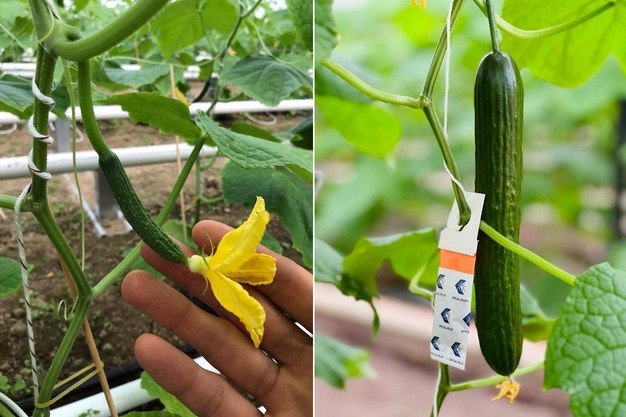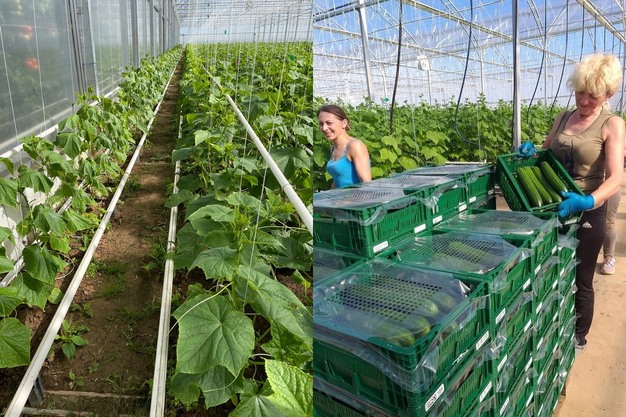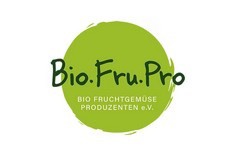With the start of the new season, German organic cucumbers from regional cultivation are available again. The member companies of the Bio Fruchtgemüse Produzenten e.V. association focus on sustainable production and the highest quality to supply the retail market with fresh, tasty cucumbers. Compared to imported goods from Spain, regional organic cucumbers offer decisive advantages: short transport routes, security of supply and the highest environmental and social standards.
"Our member companies see themselves as reliable partners for the retail sector when it comes to meeting the growing consumer demand for sustainable and regional food," explains Rudolf Dworschak, CEO of Bio.Fru.Pro. "From March to October, we ensure continuous delivery capability and are constantly working to further optimize the price-performance ratio of our cucumbers. This includes not only their intrinsic quality, but also the conditions under which the cucumbers are grown. That is why our businesses invest in renewable energies, avoid chemical pesticides, promote biodiversity directly on their farms and ensure fair working conditions." To ensure that these promises are not just empty words, each business is certified annually by independent inspection bodies.
 © Bio Fruchtgemüse Produzenten e.V. Left: cucumber blossom on the Höfler farm in Nuremberg. Right: bags of predatory mites protect the crops on the Querdel farm in Füchtorf.
© Bio Fruchtgemüse Produzenten e.V. Left: cucumber blossom on the Höfler farm in Nuremberg. Right: bags of predatory mites protect the crops on the Querdel farm in Füchtorf.
It is obvious that organic cucumbers from Spain and Bulgaria are produced under significantly lower environmental and labor standards. The supposedly lower prices for imported cucumbers thus do not reflect the actual costs to society in terms of environmental and social factors. However, if the focus is solely on the short-term carbon footprint, then importing from southern countries is justified: in winter, it is difficult to cultivate cucumbers in a climate-friendly way in Germany, even with renewable energies.
Quality, craftsmanship, and fair pay
The cultivation on high wires, as is common for growing in the topsoil, requires a high degree of careful manual labor. The minimum wage poses particular challenges for organic farms, but is considered a necessity. "Quality, manual labor and fair pay go hand in hand in organic farming," emphasizes Tim Große Lengerich, managing director of Bio.Fru.Pro. "This is the only way we can attract qualified personnel, pay them fairly for their demanding work and fulfill our social responsibility." Every increase in the minimum wage has a direct impact on the final price along the value chain and on the lives of seasonal workers.
 © Bio Fruchtgemüse Produzenten e.V. Left: freshly planted organic cucumber plants. Right: first cucumber harvest at the Zell farm in Frankfurt.
© Bio Fruchtgemüse Produzenten e.V. Left: freshly planted organic cucumber plants. Right: first cucumber harvest at the Zell farm in Frankfurt.
 "Sustainability does not end with the careful treatment of soil and plants, but includes people. All of this is reflected in the fresh taste of our first regional organic cucumbers," emphasizes Rudolf Dworschak in conclusion.
"Sustainability does not end with the careful treatment of soil and plants, but includes people. All of this is reflected in the fresh taste of our first regional organic cucumbers," emphasizes Rudolf Dworschak in conclusion.
For more information:
www.biofrupro.de
https://dworschak.bio/
